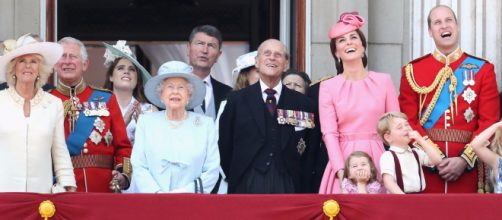Our general perceptions of what a liberal, democratic society looks like have changed to a large extent over the last 150 years. However, what seems to go largely unquestioned is the role of the monarchy in society. While many other aspects of society have changed, and new ideas seem to be evolving with every new generation coming of age, what has remained consistent is the extent to which we see the monarchy as being an empirical element within both political and general life in this country.
2018 can certainly be considered a year of reflection in terms of democracy.
Branded by many as being the 'year of the woman,' it was exactly 100 years ago this month that (some) women were brought into the franchise and granted the right to vote/stand for parliament etc. Significant events either side of 1918 would eventually result in all adults, regardless of their gender or economic circumstances, a right to cast a vote at election time and thus play an important role in deciding who runs the country.
Democratic values have evolved
It is even clear that within the last 50 years, the values of democracy that we hold and that we expect to be reflected in our political institutions have changed. Take the European Union, for example. One of the core reasons for Britain's eventual decision to vote to leave it in June 2016 was that many felt the EU lacked transparency, and therefore democratic accountability.
While the monarchy operates on a purely constitutional basis, and despite the Queen still having to give royal assent to any act passed through parliament and the head of state does not object to providing this, there is arguably still something deeply troubling that, given how our vision of democracy has evolved, we still technically have an unelected head of state.
Financial costs
Aside from the issue of democracy, there is also the issue of the financial commitment that the British state must take on in continuing to adequately fund the monarchy. According to the Independent newspaper, the cost of maintaining the Royal family increased by approximately 6 percent in 2013. This was more than double the rate of inflation for the same year.
In 2013, the Queen's expenditure from the 'Sovereign Grant' rose by £1.9 million, including a 45% increase in the cost of upkeep of the royal residences.
However, despite the increase in costs, cost per head of maintaining the royal family for 2013 was only 56 pence. This is surely a sum of money that would not be noticed if the cost of this were to be refunded to each individual taxpayer. In reality, 56 pence would barely buy a loaf of bread.
The cultural value
As stated, the cost of maintaining the royal family in 2013 was a mere 56 pence per person. The value of society of maintaining an aspect of culture and tradition that has long been seen as a central aspect of British life far outweighs the cost to the individual person of 56 pence.
Given the monarchy's political role is purely a constitutional role, and the monarch does not actually interfere in political affairs or indeed reject providing an act with royal assent, it is my view that it does not in any way hinder the legitimacy of British democracy.
In some aspects, the royal family can actually enhance political life and draw awareness to issues, given the influence that members of the extended family have within society. For example, both Princess Diana and Prince Harry have brought a great deal of awareness to the issue of HIV/Aids, both in Africa and at home.
it is safe to suggest that, prior to Diana's involvement in the campaign, HIV/Aids was seen in society as 'taboo' and branded a 'gay disease.' While it is my view that elements of this perception still exist today (for example there remain limits on the rights of gay men to donate blood), it is generally much easier to live a fulfilling life if you have HIV in 2018 than it would have been in 1988.
In conclusion, despite the way that society has evolved and the way in which our general values have changed with this, one thing that seems to transcend generations is the clear importance of the role that the monarchy within the life of the ordinary Brit.
The monarchy has enabled London to become one of the most popular cities for tourists in the world. The cultural significance of the monarchy, and the ways in which the monarchy is generally identified as being a central element to British culture far outweighs the cost of 56 pence per head and the minor inconvenience that may be incurred in having to have the Queen/future monarch sign an Act of Parliament before it becomes law.


